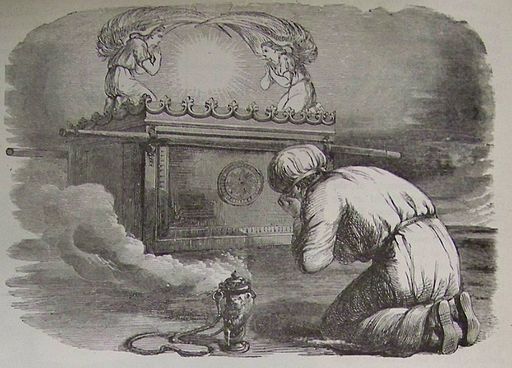Podcast: Play in new window | Download (Duration: 1:11:17 — 98.5MB) | Embed
Subscribe: Apple Podcasts | More

by Johan Ignatz Zimbal, ca. 1750
Image in the Public Domain
Psalm 24
The Bible is, seriously, one of the most interesting books ever written. Of course, many, many people would disagree with me on that point. To be honest, 30 years ago I would have disagreed with me. I believe that none of us are born with a natural love for heavenly things. In fact, quite the opposite. The Psalmist David spoke for all of us when he said, “I was shapen in iniquity; and in sin did my mother conceive me.” (Psalm 51:5) Listen, he wasn’t insulting the woman that gave birth to him, he was just stating one of the most important facts of human existence and that is that we are all born with something seriously wrong with us: sin. What’s your point? In the unsaved state, the Bible will not thrill you. An unrepentant heart will find nothing of value in Scripture.
(1Jn 5:3) For this is the love of God, that we keep his commandments: and his commandments are not grievous.
Now, having said all of that, the day you give your life to Christ is not the day you gain perfect knowledge of the things of God. That’s just the point where you’re given a heart open to what He has to say to you through His Word and through His Spirit. The moment you acknowledge Jesus as your Savior is not the day you can climb into any pulpit in America and start preaching the Gospel. It’s simply when the ability to grasp eternal things is unlocked. From that point, you must get to work. In order to truly capture the majesty of Scripture you HAVE to study it.
(Jos 1:8) This book of the law shall not depart out of thy mouth; but thou shalt meditate therein day and night, that thou mayest observe to do according to all that is written therein…
(Rom 15:4) For whatsoever things were written aforetime were written for our learning, that we through patience and comfort of the scriptures might have hope.
(Pro 2:3) Yea, if thou criest after knowledge, and liftest up thy voice for understanding;
(Pro 2:4) If thou seekest her as silver, and searchest for her as for hid treasures;
(Pro 2:5) Then shalt thou understand the fear of the LORD, and find the knowledge of God.
In this episode we discuss one of the most interesting sections in all the Bible: Psalm 24. (Without the Holy Spirit, you may not agree.) Many of the Psalms were written to celebrate or commemorate certain events from the long, diverse history of the nation Israel. Sometimes the event that inspired the Psalm is obvious and sometimes we have to guess. Psalm 24 belongs to the latter category. However, when judging from the content, most scholars will agree that it was likely written to commemorate the return of the Ark of the Covenant to Jerusalem after being briefly held by the Philistines as a spoil of one of the many wars between the two nations. However, like almost everything else written in the Bible, the true meaning of Psalm 24 lies somewhere beneath the surface and THAT is what makes this Psalm so incredible. Can you guess what it is really talking about? I think you can.
Join us for this podcast as we attempt to unlock the eternal truth of this lovely gem from the Hebrew song book. But before you do, I urge you to prepare your heart and mind by going to the Lord in prayer. Ask Him to open up His Word to you. Ask Him to help you to see in Scripture what seems hidden to so many. Pray that God’s Holy Spirit will shine His light on eternal things so that you may apply them to the calling He has placed on your life.

